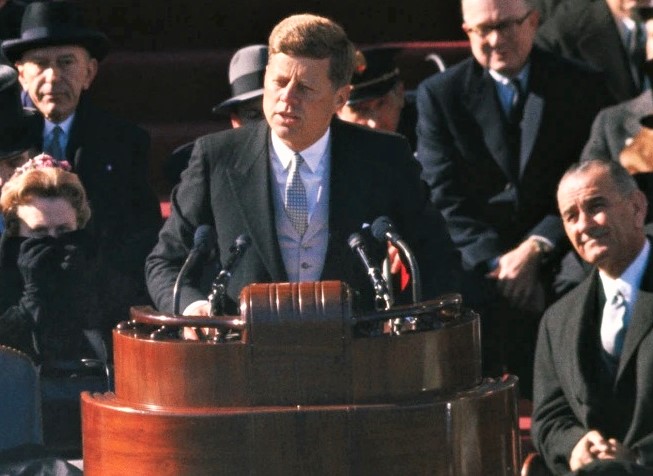
Bettmann / Bettmann Archive
Friday, January 20, 1961.
I watched as my 7th grade teacher wheeled a big TV into the classroom and announced that we would be watching the inauguration of a new president.
Any excuse to watch TV was great. When it was over, I realized I was part of a moment in history that I would never forget.
The day was a cold and windy 35 degrees. The night before a nor’easter blanketed Washington with so much snow that thousands of cars were trapped in place.
After being sworn in by Chief Justice Earl Warren as the 35th president of the United States, John F. Kennedy delivered what would become one of the most iconic speeches in American history. Not as great as Lincoln’s Gettysburg, or Washington’s first speech to the nation, but it’s up there.
Kennedy’s inaugural address was not just a defining moment for a new president but a moment that continues to remind us of who we are, what we stand for, and the duty each of us has to maintain our democracy.
In strong, clear language, Kennedy emphasizes what the country has endured, what it has learned from the past, and the new path before us.
“Let the word go forth from this time and place to friend and foe alike, that the torch has been passed to a new generation of Americans—born in this century, tempered by war, disciplined by a hard and bitter peace, proud of our ancient heritage—and unwilling to witness or permit the slow undoing of those human rights to which this nation has always been committed, and to which we are committed today at home and around the world.”
He speaks directly to his Russian counterpart, Nikita Khrushchev, offering a partnership of peace, words that today’s Congress should observe.
“So let us begin anew—remembering on both sides that civility is not a sign of weakness, and sincerity is always subject to proof. Let us never negotiate out of fear. But let us never fear to negotiate.
“Let both sides explore what problems unite us instead of belaboring those problems which divide us.
“Let both sides, for the first time, formulate serious and precise proposals for the inspection and control of arms–and bring the absolute power to destroy other nations under the absolute control of all nations.
“Let both sides seek to invoke the wonders of science instead of its terrors. Together let us explore the stars, conquer the deserts, eradicate disease, tap the ocean depths, and encourage the arts and commerce.
“Let both sides unite to heed in all corners of the earth the command of Isaiah—to ‘undo the heavy burdens . . . (and) let the oppressed go free.’
“And if a beachhead of cooperation may push back the jungle of suspicion, let both sides join in creating a new endeavor, not a new balance of power, but a new world of law, where the strong are just and the weak secure and the peace preserved.”
He describes the qualities of character that Americans have brought to past struggles and asks us to recommit to “The energy, the faith, the devotion which we bring to this endeavor [that] will light our country and all who serve it—and the glow from that fire can truly light the world.”
Looking out at the vast crowd around the Capitol and around the world, Kennedy states clearly and forcefully:
“And so, my fellow Americans: ask not what your country can do for you—ask what you can do for your country.
“My fellow citizens of the world: ask not what America will do for you, but what together we can do for the freedom of man.”
Ask what you can do.
Ask how you can contribute; how each of us can help; how all of us can work together against struggles–both real and imaginary–that we face reminding ourselves of our duty to give more than we receive; treat others as we would be treated and demonstrate that love is always more powerful than hate.
Comments









